Buy Bessel A. van der Kolk’s 30th Annual Trauma Conference-Main Conference *Pre-Order* – Bessel Van der Kolk Course at GBesy. We actively participate in Groupbuys and are committed to sharing knowledge with a wider audience. Rest assured, the quality of our courses matches that of the original sale page. If you prefer, you can also buy directly from the sale page at the full price (the SALEPAGE link is directly provided in the post).
Salepage link: At HERE. Archive:
$199.99 $60 – Bessel A. van der Kolk’s 30th Annual Trauma Conference-Main Conference *Pre-Order* – Bessel Van der Kolk
This digital seminar is currently on pre-order meaning that the video will not be ready until 10-12 weeks after the program has taken place.
The study of trauma has probably been the single most fertile area in helping to develop a deeper understanding of the relationship among the emotional, cognitive, social and biological forces that shape human development.
Starting with post-traumatic stress disorder (PTSD) in adults and expanding into early attachment and overwhelming attachment and social experiences in childhood (“Developmental Trauma”), this endeavor has elucidated how certain experiences can “set” psychological expectations, bodily experiences and biological selectivity.
When addressing the problems of traumatized people who, in a myriad of ways, continue to react to current experience as a replay of the past, there is a need for therapeutic methods that do not depend exclusively on drugs, talk or understanding. We have learned that most experience is automatically processed on a subcortical level of the brain; i.e., by “unconscious” interpretations that take place outside of conscious awareness. Insight and good intentions have only a limited influence on the operation of these subcortical processes, but synchrony, movement and reparative experiences do.
This conference will present both basic research about the impact of trauma over the life cycle, and a range of effective interventions that are being practiced in clinics, schools, prisons, families, and communities around the world.
Workshops included in this recording:
- Three Decades of Explorations in Trauma: Welcome & Introduction – Bessel A. van der Kolk, MD
- Me Too: At the Intersection of Sexual Violence and Racial Justice— A Fireside Chat with Tarana Burke – Tarana Burke
- Psychiatry Under the Influence: Institutional Corruption, Social Injury and Prescriptions for Reform – Robert Whitaker
- Trust and Meaning Making in Parent-Child Interactions – Edward Tronick, Ph.D.
- The Enduring Neurobiological Effects of Abuse and Neglect – Martin Teicher, MD, Ph.D.
- The Evolution of Developmental Trauma Disorder – Julian Ford, Ph.D, ABPP
- Panel Discussion – Bessel A. van der Kolk, MD, Edward Tronick, Ph.D., Martin Teicher, MD, Ph.D., Julian Ford, Ph.D.
- Expressive Arts as Healing Engagement – Cathy Malchiodi, Ph.D.
- DE-CRUIT: Treating Trauma in Military Veterans through Shakespeare & Science – Stephan Wolfert, MFA
- Dealing with Trauma in the Heart of the Community: Implementing a Comprehensive Yoga Program in a Large Public School System – Ali Smith, Atman Smith, & Andres Gonzalez
- Present an overview of the impact of trauma on the various parts of the brain, body and nervous system.
- Identify culturally aware and effective therapeutic interventions with post-trauma student populations
- Utilize the individual and social interventions developed by the Me Too movement to reduce the prevalence of sexual violence
- Assess current research findings in regard to long-term antidepressant treatment and possible negative outcomes
- Explain the relationship between maternal responsiveness and infant development of ability to manage arousal
- Describe how traumatic experiences impact brain development and affect regulation as it relates to clinical practice.
- Recognize the five symptom clusters used in the DSM-5® to define Developmental Trauma Disorder (DTD) in relation to assessment and treatment planning.
- Identify why sensory-based, arts interventions are essential to reducing the body’s response to stress and put to practical use in-session.
- Critique current research into the efficacy of expressive arts approached to trauma treatment
- Utilize DE-CRUIT techniques to transform military camaraderie into camaraderie among treatment group members to communalize the process of healing from the trauma of war.
- Implement mindful and stress reducing techniques in school settings to reduce disciplinary actions and the academic impact of trauma
Three Decades of Explorations in Trauma: Welcome & Introduction (Bessel A. van der Kolk, MD)
- Viewing trauma through the perspective of neuroscience and military experience
- Political implications of the role of childhood trauma history
- Prevalence and impact of violence and poverty
- Limitations of research and current diagnostic framework for trauma
- Omission of social context and importance of interpersonal connections
Me Too: At the Intersection of Sexual Violence and Racial Justice— A Fireside Chat with Tarana Burke (Tarana Burke)
- Developmental history of the 21st Century program for survivors of poverty and abuse
- Transition into the Me Too movement
- Cultural influences on trauma processing and identification of trauma survivors
- Structuring intervention with vulnerable student populations
- Evolution of Me Too platform – maintaining focus on survivors, training organizers
- Central importance of facilitating a culture shift
Psychiatry Under the Influence: Institutional Corruption, Social Injury and Prescriptions for Reform (Robert Whitaker)
- International research into treatment response and change over time
- Adjusting the psychiatric narrative to reflect current research and effective treatment models
- Impact of DSM-III – disease model and theories of chemical imbalance
- Dramatic expansion of medication interventions
- Iatrogenic responses to psychiatric medications – Star*D research trial
- Tardive Dysphoria and Oppositional Tolerance – increased vulnerability to relapse
Trust and Meaning Making in Parent-Child Interactions (Edward Tronick, PhD)
- Humans as makers of meaning
- Infant development in a volatile, uncertain, complex and ambiguous world
- Developmental stages in the meaning making process – involved psychobiological systems
- Infant self-regulation processes and arousal responses
- Persistent and generalized cardiac reactivity
- Maternal influences on the development of stress response
- Developmental consequences of early chronic adverse effects
- Hemispheric adaptations in the amygdala
The Enduring Neurobiological Effects of Abuse and Neglect (Martin Teicher MD, PhD)
- Risk factors related to childhood abuse and neglect
- Cascade of physiological and neurohumoral responses disrupting brain development
- Sensitive exposure periods
- Neurological expression of early adverse experiences
- Disrupted hemispheric integration – Borderline and Dissociative symptom manifestation
- Heightened response to threat – functional adaptation to malevolent environment
- Fear circuit regions and pathways – amygdala and hippocampus
- Gender and developmental differential response to abuse and neglect
- Reactive Attachment Disorder
- Structural connectivity networks – emotional regulation and self-centered imagery
- Architectural differences in traumatized individuals who do not develop pathology
The Evolution of Developmental Trauma Disorder (Julian Ford, PhD, ABPP)
- Origins of Developmental Trauma Disorder – differentials from other trauma diagnoses
- Central issues in production and expression
- DSM-5 PTSD criteria changes from DSM-IV
- Adaptations to threat environments
- Case example – therapeutic engagement with DTD adolescent
- Effects of developmental trauma on infants and children – relationship disruptions
- Core elements of the DTD diagnosis – attentional, physiological and relational self-regulation
- Contrasts between DTD and PTSD symptom presentations – field trial results
- Future directions of research
- Case example – family intervention
Panel Discussion (Bessel A. van der Kolk, MD; Edward Tronick, PhD; Martin Teicher MD, PhD; Julian Ford, PhD, ABPP)
- Creating a new narrative – functional adaptation to the tribe
- Adapting therapeutic approach to varied settings and individuals
- Understanding cultural and socio-economic influences on trauma experience
- Developing resources and research base for treating childhood trauma
- Social reluctance to acknowledge the impact of developmental trauma
Expressive Arts as Healing Engagement (Cathy Malchiodi, PhD)
- Integration of expressive arts into expressive art therapy
- The “silos” of expressive art
- Current expressive arts programs in health and community settings
- Continuum of expressive arts therapies
- Asset driven approach as opposed to pathology driven interventions
- Limitations of evidence base underlying expressive arts therapy for trauma treatment
- Directions for future research
- Effective implementation of community-based interventions
- Four part model for expressive arts and trauma – movement, sound, storytelling, and silence
- Examples of effective implementation
DE-CRUIT: Treating Trauma in Military Veterans through Shakespeare & Science (Stephan Wolfert, MFA)
- Racial and colonization history related to social trauma
- Origins of DE-CRUIT program
- Impact of Shakespearian themes on personal trauma and symptom expression
- Projective measures for expression and identifying trauma symptomatology
- Parallels between Shakespearian content and PTSD symptoms
- Applying specific passages to dreams and experience
- Pacing, rhythm and grounding
- Research into the efficacy of the DE-CRUIT program
Dealing with Trauma in the Heart of the Community: Implementing a Comprehensive Yoga Program in a Large Public School System (Ali Smith, Atman Smith, and Andres Gonzalez)
- Demonstration of Silent Reflection technique
- History and development of the Holistic Life Foundation
- Top down approach – establishing mindfulness in caretaking adults first
- Centrality of presence and consistency
- Setting boundaries and self-care to create sustainable programs
- Mindful Moment Program – turning detention into meditation
- Outcome measures of reduced suspensions
- Relationship development with gatekeepers
- Reciprocal teaching process
- Mindful Ambassadors Program
- Leveraging the impact of limited resources
- Demonstration of Stress Breath technique
- Managing poorly engaged or motivated students effectively
- Using trauma informed language
- Cultural avenues for facilitating engagement
- Adapting programs to diverse or changing environments
$199.99 $60 – Bessel A. van der Kolk’s 30th Annual Trauma Conference-Main Conference *Pre-Order* – Bessel Van der Kolk
Buy the Bessel A. van der Kolk’s 30th Annual Trauma Conference-Main Conference *Pre-Order* – Bessel Van der Kolk course at the best price at GBesy.. After your purchase, you will get access to the downloads page. You can download all the files associated in your order at here and we will also send a download notification email via your mail.
Unlock your full potential with Bessel A. van der Kolk’s 30th Annual Trauma Conference-Main Conference *Pre-Order* – Bessel Van der Kolk courses. our courses are designed to help you excel.
Why wait? Take the first step towards greatness by purchasing Bessel A. van der Kolk’s 30th Annual Trauma Conference-Main Conference *Pre-Order* – Bessel Van der Kolk courses today. We offer a seamless and secure purchasing experience, ensuring your peace of mind. With our trusted payment gateways, Stripe and PayPal, you can confidently complete your transaction knowing that your financial information is protected.
Stripe, known for its robust security measures, provides a safe and reliable payment process. With its encrypted technology, your sensitive data remains confidential throughout the transaction. Rest assured that your purchase is protected.
PayPal, a globally recognized payment platform, offers an additional layer of security. With its buyer protection program, you can feel confident in your purchase. PayPal ensures that your financial details are safeguarded, allowing you to focus on your learning journey.
Is it secure? to Use of?
- Your identity is completely confidential. We do not share your information with anyone. So it is absolutely safe to buy the Bessel A. van der Kolk’s 30th Annual Trauma Conference-Main Conference *Pre-Order* – Bessel Van der Kolk course.
- 100% Safe Checkout Privateness coverage
- Communication and encryption of sensitive knowledge
- All card numbers are encrypted using AES at relaxation-256 and transmitting card numbers runs in a separate internet hosting atmosphere, and doesn’t share or save any data.
How can this course be delivered?
- After your successful payment this “Bessel A. van der Kolk’s 30th Annual Trauma Conference-Main Conference *Pre-Order* – Bessel Van der Kolk course”, Most of the products will come to you immediately. But for some products were posted for offer. Please wait for our response, it might take a few hours due to the time zone difference.
- If this happens, please wait. The technical department will process the link shortly after. You will receive notifications directly by e-mail. We appreciate your wait.
What Shipping Methods Are Available?
- You will receive a download link in the invoice or YOUR ACCOUNT.
- The course link always exists. use your account to login and download the Bessel A. van der Kolk’s 30th Annual Trauma Conference-Main Conference *Pre-Order* – Bessel Van der Kolk course whenever you need.
- You only need to visit a single link, and you can get all the Bessel A. van der Kolk’s 30th Annual Trauma Conference-Main Conference *Pre-Order* – Bessel Van der Kolk course content at once.
- You can do your learning online. You can be downloaded for better results and can study anywhere on any device. Make sure your system does not sleep during the download.
How Do I Track Order?
- We always notice the status of your order immediately after your payment. After 7 days if there is no download link, the system will automatically complete your money.
- We love to hear from you. Please don’t hesitate to email us with any comments, questions and suggestions.
![GBesy [GB] GBesy [GB]](https://www.gbesy.com/wp-content/uploads/2023/05/gbesy-Logo-full-100.png)



 Purchase this course you will earn
Purchase this course you will earn 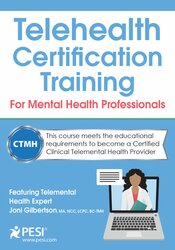
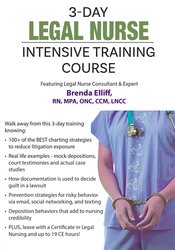
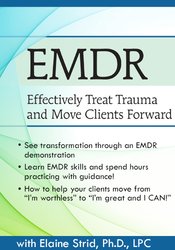
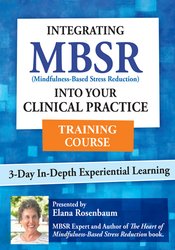
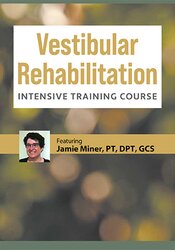
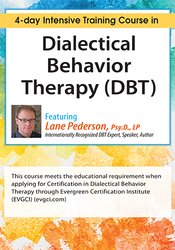
Reviews
There are no reviews yet.